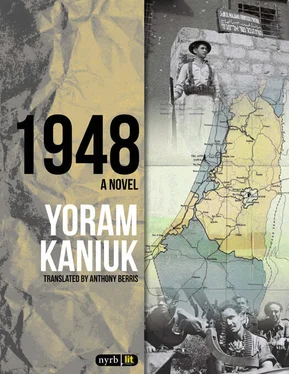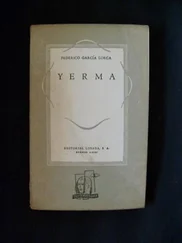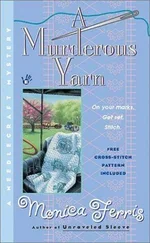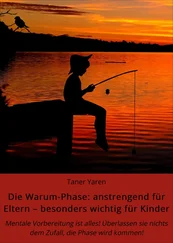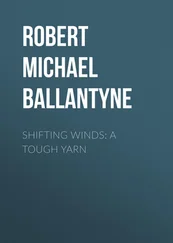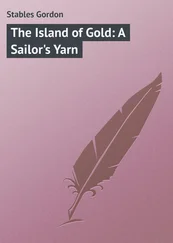I’ve been trying to write about this for fifty-nine years. In 1949, when I was a deckhand aboard the SS Pan York and took part in bringing Holocaust survivors to Israel, I wrote a book I called “Benny’s Comrades”—Benny Marshak, that is. A beautiful woman from the village of Kfar Yehoshua copied the manuscript but no one wanted it and it was lost.
I’m not sure what I actually remember since I do not rely on memory, it is sly and does not possess a one and only truth. And what’s really all that important? A lie that comes from seeking truth can be more genuine than truth itself. You think, and a moment later you remember only what you want to. I was a seventeen-and-half-year-old youth, a nice Tel Avivan boy in the middle of a bloodbath. I’m trying to fish myself out of what seem to be memories, but perhaps I was someplace else? Years later, a serious man told me that the story about the bullet in the armored vehicle didn’t take place in Bab el-Wad but on Mount Zion — maybe he’s right. So what? Perhaps for five months I was lying under a down quilt in the magnificent palace belonging to my late grandfather Yankele Hariri, who was an aristocratic Jew in Venezuela, and I dreamed all these things.
Exactly who was I back then? What exactly did I do?
Did I go to the toilet? Did we even have toilets? Did I ever brush my teeth? Did I have a toothbrush? And if I did brush my teeth like every nice boy in Eretz Yisrael, where did I get toothpaste? And what did I do between the battles? Who was I, what did I think about, apart from the few occasions that I remember thinking? And what is memory? Memory is what I write is memory.
I’m old, ailing, thinking about the new state that Ben-Gurion established, sixty years old now, its parents no longer with us and its heirs are idiots, fools, robbers, wicked people who’ve forgotten where they came from. For remembering is difficult for anyone who wasn’t there and didn’t see how good people made mistakes and didn’t make mistakes, who made puzzling but also daring decisions. To remember, and very soon those who were there with me will no longer be here, even though I see that today there are more than there were then. They’ve reproduced postmortem. Today there’s a Palmach House that’s bigger than the whole Palmach when there was a Palmach, and there’s a Palmach generation that makes Palmach films and organizes Palmach conventions and appoints Palmach commemoration committees, and they award Palmach prizes and rewrite Palmach history — they’ve founded an enterprise for the misrepresentation of the Palmach memory! The real Palmach was terminated in 1948 on the orders of Ben-Gurion, who with his brutal zealotry realized that the political parties’ private armies — of which the Palmach was one — must be disbanded, and it made no difference how much blood it spilled and how much happiness it brought in the end, and how with a few other battalions it established a state out of nothing. At a sad assembly in Tel Aviv they shouted, “The Moor has done his duty, the Moor may go.” After its death the Palmach became a big army with a huge palace where ninety percent of those frequenting it weren’t even in the Palmach back then, when it was fighting. There’s life after death, as the saying goes, at least when it concerns the Israeli underground movements.
Israel. Judah. A Hebrew state. Jewish. Israeli. Maybe it’s nothing but a new Canaan, the land of the Amorites, the Hivites, and the Jebusites, the State of the Jews. Instead of teachers we had oratorical prophets who wanted us to bring them salvation, that we beat the Nazis, may their name be erased. “We,” except for me, since my father was indifferent to new states in the Middle East and read books in German and listened to Beethoven quartets and Monteverdi’s music and dreamed in German about Berlin, but most of my friends had parents who spoke Yiddish or Romanian or Hungarian, and when we started to sense that war was approaching, they became very frightened because they had only just heard that their families, which they had left when they emigrated to Palestine, had perished in the recently ended Holocaust. They enthusiastically sent us to establish a state for their families that had perished, to establish a state for their dead, and they didn’t know that the state would be a sort of lunatic asylum in the desert, strewn with the bonemeal of the Jews who didn’t make it here alive.
Israel is indeed a state of the dead. It was established for the dead. It is a remembrance of the fact that perhaps they might not have died had we established it fifty years earlier. How can a Jewish state live with the historic glue of the kind of Almighty, blessed be He, who matter-of-factly, indifferently, murdered one-third of its people? Behind us stood old, melancholy revolutionaries. A few of them were flamboyant, small of stature, and zealots, beautiful in their fervor and love of history that gave their children the right to exact vengeance on their behalf, and perhaps they were even noble in the ill-fated sense of the word, and they saw us for one moment in the history of Israel, the Eternal People, an ancient people that for two thousand years had wanted to live with dignity and didn’t know how, a people that loves yearning more than living, that was born in the desert and left their homeland, their father’s house, to wander and be downtrodden, but not to do anything valiant with those yearnings. Our teachers thought that we would resurrect our ancient land, our national home, and avenge Jewish history, avenge the pogroms. They wanted us to undertake a vast reprisal operation against Jewish history, as in “The Lesson” by Haim Hazaz, which we all learned by heart. They wanted us to start creating a new, manly Jewish history of our own and no longer live by the grace of someone else’s history. We were to bring honor to the humiliated nation that had been attacked in order to annihilate it, and we went off to establish a state against Chmelnitsky and his pogroms and the Cossacks and the Germans, and all we found facing us were Arabs, who we’d known from the time they fired on us in the 1930s when we traveled to Gedera, and from the donkeys, and the market in Jaffa, and from the shouts of “ Itbakh al-Yahud ” (Kill the Jews), from the tasty tahini, the coffee with cardamom, from the Khayyat Beach that belonged to the aristocratic Arab my father liked to visit in his palace in Haifa, from the stories about Hanita and Major-General Wingate and the killing and the rage and the struggle from 1920 onward.
For our forefathers what happened here two thousand years ago was the stuff of legend, shards of fired clay, and for us what happened back then is history and geography. We were the children of the Bible, but also the children of Bialik and Ravnitzky’s Book of Legends , and we loved reading about how Moses sees Joshua going into the Tent of the Congregation and envies him and says to God, “Rather a hundred deaths than a single pang of envy.” Our parents were Poles, Russians, Germans, Romanians, and Greeks who had known calamity and humiliation and had come to the historic homeland to restore our days as of old. Sixty years ago, from December 1947 to the end of 1948, we were the “handsome, tousle-headed youngsters” we really were. I swear we were.
Back then there were three kinds of toothpaste: Shemen; Shenhav, which was made by the Kupat Holim Health Fund; and the British Collins, which was the jewel in the crown. We smoked Matossian, Latif, Degel, Odem, Dubek, Players, and Craven A cigarettes in packets of ten. We were almost weaponless, with commanders thirsty for battle but with no combat experience, who before they became commanders all they’d known about the war of murder, bereavement, and massacre was blowing up bridges and hitting each other in hand-to-hand combat. And in fact, we were indeed few. During those bitter months, until the first cease-fire, we were alone, hungry, and thirsty. Most of our peers had not yet enlisted. They were called up only later and forced to leave twelfth grade before the end of the school year, but with their matriculation certificate. And I had only a certificate attesting to the fact that I had completed elementary school, and that wasn’t any great shakes either.
Читать дальше
